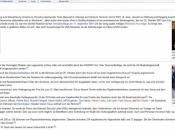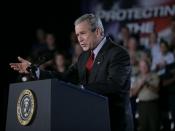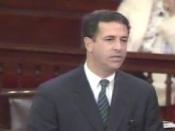� PAGE �1�
9/11 attacks and PATRIOT Act
The world has changed after the 9/11 attacks. It was not only the US, but a number of countries which introduced major changes in their laws to combat terrorism. On October 24, 2001, US Congress passed the USA PATRIOT Act. This legislation gave increased powers to the government which helped it to fight terrorism affectively, but on the cost of civil liberties. The powers included collection of all forms of electronic surveillance - telephone calls, voicemail, internet use and email. The PATRIOT Act also facilitates and expands the grounds for a Foreign Intelligence Surveillance Act (FISA) order. The FISA, common called the 'Protect America Act' was passed in 1978 to give a difference between domestic wiretapping cases and those in which foreign intelligence was involved for defending Americans' Fourth Amendment rights. The amendments to this Act considerably take away many of those rights.
In fact, changes in the FISA are considered a direct attack on the rights and liberties of Americans.
A large number of Americans believe that the PATRIOT Act threatens their civil liberties in numerous ways. Financial disclosure requirements for organizations regarding their customers' transactions, the arrest of immigrants suspected of involvement in terror acts for indefinite time, the issue of covert search warrants, the compulsory collection of DNA samples from federally convicted prisoners and the power to access medical, tax and library records are the other provisions of the PATRIOT Act. This legislation also encoded extraordinary and wide-ranging powers for the executive while weakening oversight of those powers by Congress and the judiciary. Abele (2005) says that the PATRIOT Act is a big question for the American democracy. "Whatever conclusion one draws about USA PATRIOT and its siblings, no one who knows the content of the Act(s) can...


